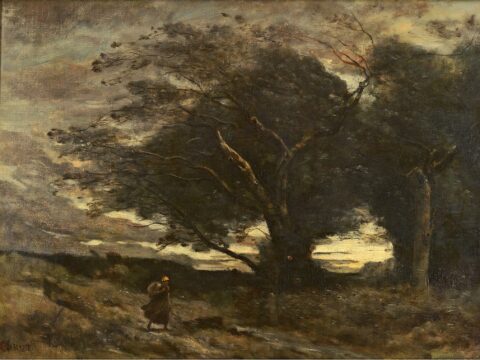
In the sufferings of his body. He suffered truly, not in appearance only. The apostle calls it the death of the cross. Phil 2:8. Cicero, when speaking of this kind of death, says, “How can I describe being raised up on a cross?” Though he was a great orator he lacked words to express it. The thoughts of this made Christ sweat great drops of blood in the garden. Luke 22:24. It was an ignominious, painful, cursed death. Christ suffered in all his senses. His eyes beheld two dreadful objects, his enemies insulting, and his mother weeping. His ears were filled with the revilings of the people. “He saved others, himself he cannot save.” Matt 27:42. His smell was offended when their spittle fell upon his face. His taste; when they gave him gall and vinegar to drink. His feeling; when his head suffered with thorns, his hands and feet with the nails. His whole body was one great wound; now was this white lily dyed with purple color.
In the sufferings of his soul. He was pressed in the wine-press of his Father’s wrath. This caused that vociferation and outcry on the cross, “My God, my God, why have you forsaken me!” Christ suffered a double eclipse upon the cross, an eclipse of the sun, and an eclipse of the light of God’s countenance. How bitter was this agony! The evangelists use three words to express it. “He began to be amazed.” “He began to be faint.” “To be exceeding sorrowful.” Christ felt the pains of hell in his soul, though not locally—yet equivalently.
Thomas Watson. A Body of Divinity.



